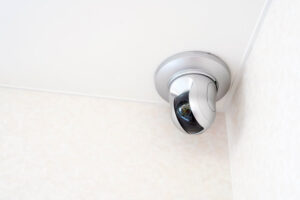Nursing Home Abuse and Neglect
 Unfortunately, a prevalent but often ignored problem among the elderly is abuse and neglect in nursing homes. According to the 2010 census, there were more people aged 65+ than ever before in U.S. history. There were 40.3 million, which was approximately 13% of the population. A majority of these people were women.
Unfortunately, a prevalent but often ignored problem among the elderly is abuse and neglect in nursing homes. According to the 2010 census, there were more people aged 65+ than ever before in U.S. history. There were 40.3 million, which was approximately 13% of the population. A majority of these people were women.
Elder abuse and neglect in nursing homes is tragically underreported. The National Center on Elder Abuse (NCEA) stated that approximately 95% of nursing home residents have experienced or witnessed neglect.
When you put a family member into a nursing home, you expect them to receive the care they need that they can’t provide for themselves. Regrettably, this doesn’t always happen.
Abuse is defined in Oklahoma law as a caretaker or other person providing services to a vulnerable adult causing or permitting the infliction of physical pain, injury, sexual abuse, sexual exploitation, unreasonable restraint or confinement, mental anguish, or personal degradation. It’s also the deprivation of nutrition, clothing, shelter, health care, or other care or services without which serious physical or mental injury is likely to occur to a vulnerable adult (Okla. Stat. tit 43A § 10-103).
Oklahoma law defines neglect as failure to provide protection, adequate shelter, nutrition, health care, or clothing to a vulnerable adult who is unable to protect his or her own interest. It’s also negligent acts or omissions that result in harm or the unreasonable risk of harm to a vulnerable adult through the action, inaction, or lack of supervision by a caretaker providing direct services (Okla. Stat. tit 43A § 10-103).
If you or someone you love is a victim of abuse or neglect in a nursing home, a personal injury attorney from Wirth Law Office – Tulsa can be a strong advocate for your rights.
Signs of Abuse in a Nursing Home
The best way to determine if a loved one is suffering from abuse in their nursing home is to visit them regularly. Once you are familiar with their mental and physical condition, it’ll be easier to tell when something’s off. Some common signs of physical abuse or neglect are:
- dehydration
- weight loss
- reclusiveness or refusal to talk
- bed sores
- poor appearance or uncleanliness
- frequent infections
- bruising
- cuts
- welts
- broken bones
- fractures
In addition to physical abuse, it could be sexual, emotional, or financial. It can even come in the form of neglect. If you believe that someone you love is suffering from abuse in a nursing home, reach out to a skilled personal injury lawyer in Tulsa. They can get them the help they need and make sure justice is served.
Neglect and Negligence in a Nursing Home
 Neglect and negligence go hand-in-hand. In fact, negligence is found in the definition of neglect. “Negligent acts or omissions that result in harm or the unreasonable risk of harm to a vulnerable adult” are considered a form of neglect.
Neglect and negligence go hand-in-hand. In fact, negligence is found in the definition of neglect. “Negligent acts or omissions that result in harm or the unreasonable risk of harm to a vulnerable adult” are considered a form of neglect.
In Oklahoma law, a person is considered negligent when they have acted with more carelessness than a reasonable person would in the same situation. A person can only be negligent if they owe someone a duty of care that they breached, which resulted in harm.
Some nursing homes don’t properly train their employees, which can lead to a preponderance of negligence. Nursing homes also have a tendency to be understaffed, which often results in neglect since there aren’t enough employees to provide proper care to the patients.
A common form of neglect is failure to properly monitor patients. This could lead to an increase in falls resulting in injury, choking on food, or other accidents. Something that could be either negligence or abuse is overmedicating. Giving a patient too much of one or more medications can have serious adverse side effects.
If you suspect that your loved one is facing neglect or negligence in a nursing home, Tulsa’s Wirth Law Office attorneys can help you determine what to do next.
Nursing Home Requirements
Nursing homes in Oklahoma are required by law to do a number of things to maintain the health and wellbeing of their patients. Some of those things are:
- encourage patients to leave their bed and be active
- keep them properly hydrated
- provide proper skincare
- use support devices
- turn patients in their bed every two hours to reduce the likelihood of bed sores
- create toilet schedules and programs to improve continence
- update care plans and assessments to show changes in physical, mental, or psychosocial function
- provide three square meals a day and make food available between meals
In an ideal world, all nursing homes would go above and beyond these requirements. Sadly, that is not the reality. If your family member isn’t receiving the proper care at their nursing home, it’s important that you hold the facility accountable or move them to a different one. If that is the case, they may also be experiencing abuse or neglect. An experienced and compassionate attorney from Wirth Law Office in Tulsa can get them what they deserve.
Restraints in Nursing Homes
 Oklahoma law prohibits the use of physical or chemical restraints on a nursing home patient. Some facilities are guilty of using restraints to make the patient more cooperative or less autonomous. That is prohibited by law in Oklahoma.
Oklahoma law prohibits the use of physical or chemical restraints on a nursing home patient. Some facilities are guilty of using restraints to make the patient more cooperative or less autonomous. That is prohibited by law in Oklahoma.
The only times it’s acceptable to use restraints on a patient in a nursing home is during an emergency or if it’s necessary to treat them for a medical condition. Even then, they must be allowed a 10 minute break from the restraints every two hours, if they are restrained for that long.
Unnecessary and excessive restraining of a patient are just a couple of examples of how patients in nursing homes are mistreated. If someone you care about is in a nursing home and has bruises on their neck or wrists, they may have been illegally restrained. A Tulsa attorney can help you find out the truth and get your loved one to safety.
Electronic Monitoring in Nursing Homes
 In 2013, Oklahoma passed Senate Bill 587. It revised the previous nursing home laws to allow nursing home patients and their loved ones to install electronic monitoring devices in their rooms. This was done as a safety measure to ensure patients aren’t being mistreated.
In 2013, Oklahoma passed Senate Bill 587. It revised the previous nursing home laws to allow nursing home patients and their loved ones to install electronic monitoring devices in their rooms. This was done as a safety measure to ensure patients aren’t being mistreated.
It is prohibited to tamper with or disable the cameras. The patient must have a sign notifying all visitors that the room is under video and/or audio surveillance.
While this is a step in the right direction, it doesn’t account for what goes on outside of the patient’s room. Especially because some abuse and neglect is subtle and won’t necessarily show up on camera.
Thankfully, the footage from these devices can be used in both civil and criminal proceedings as evidence of any abuse, neglect, or negligence. If someone you care about is in a nursing home where you don’t think they are safe or well taken care of, there are attorneys in Tulsa who are willing and able to help.
Strategy Session with a Tulsa Personal Injury Attorney
Abuse and neglect in nursing homes is outrageously prevalent. Patients are vulnerable and defendant. They suffer everyday. Someone you know and love may be one of them. If you suspect that they are a victim, reach out to a strong and sympathetic attorney from Wirth Law Office – Tulsa. To schedule your initial strategy session, call (918) 879-1681. You can also fill out the form at the top of the page.










